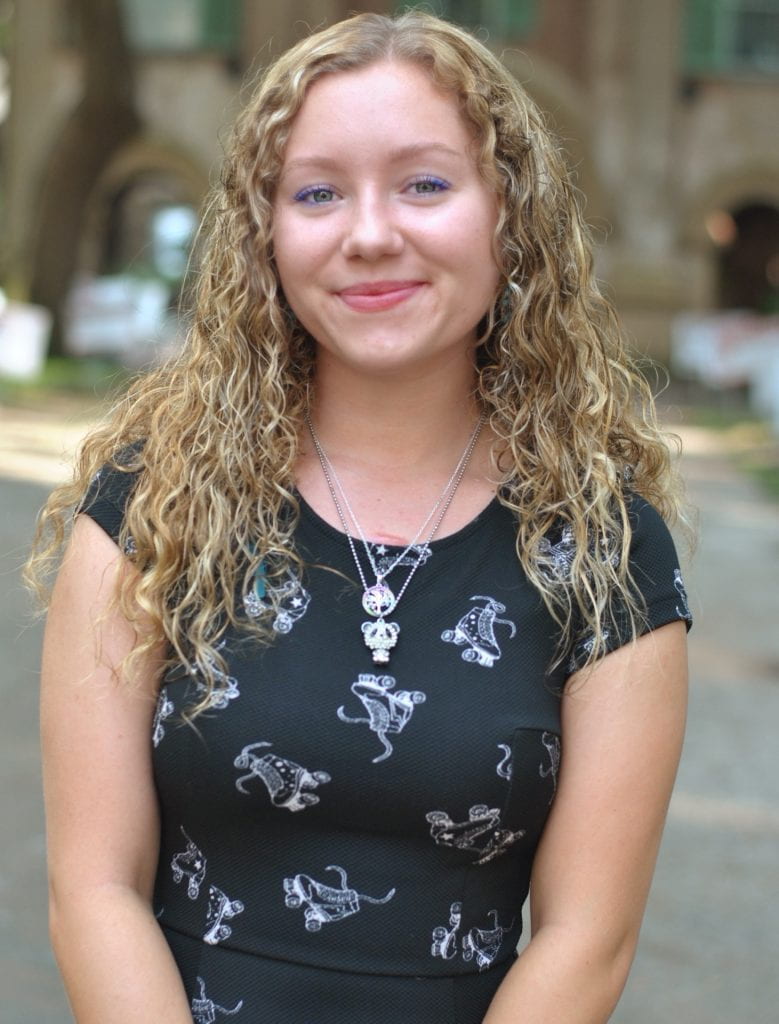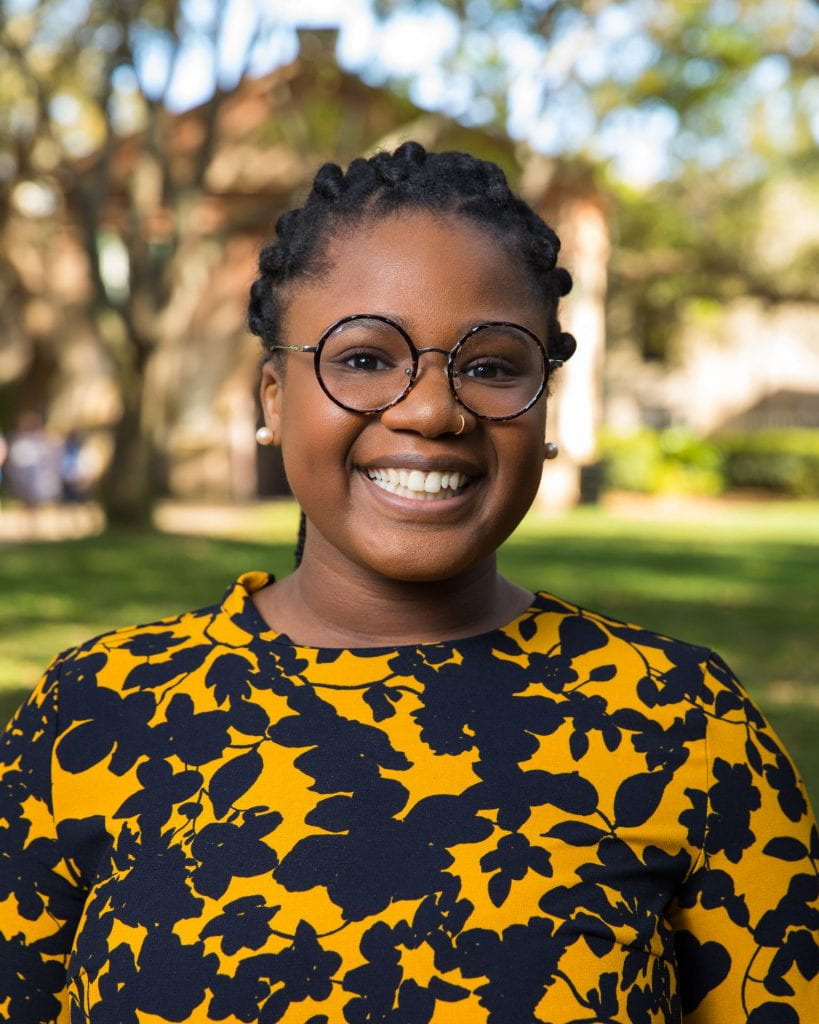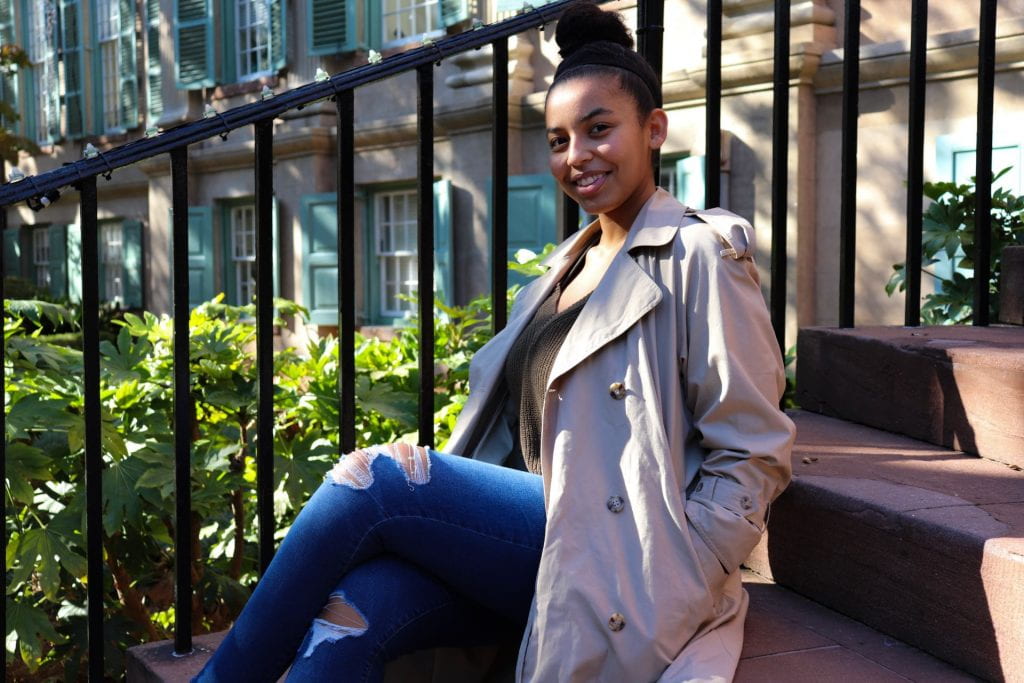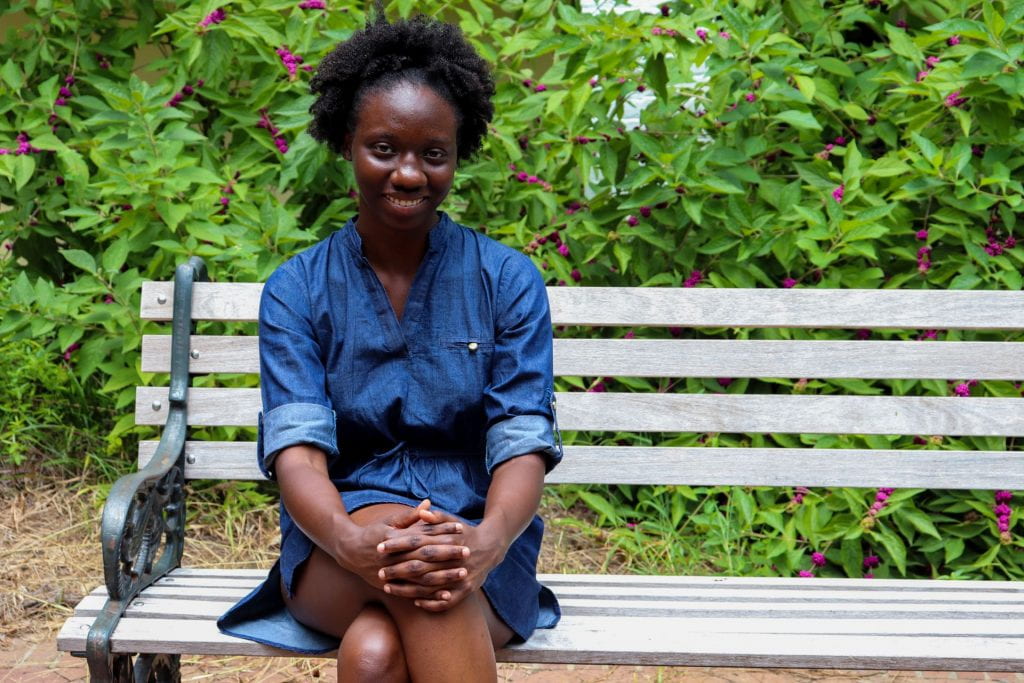Tell us a little bit about yourself! What are your pronouns? Your hometown? Your major(s)/minor(s)?
I am from Greenville, South Carolina. My pronouns are she/her/hers. I am a Women’s and Gender Studies major, and I’m minoring in anthropology and psychology.
Why did you choose to study WGS?
I first wanted to go into a social science field and just tailor my electives around my interests in sustainability and WGS. It didn’t take me long to realize that I was only truly passionate about my WGS courses. They were the ones that made me crave knowledge, seek action, and reevaluate my individual perspective. I decided I wanted to spend my time learning about things that made me passionate, so I became a WGS major! Its interdisciplinary perspective promotes a holism that takes students further than most majors.
What areas/aspects of WGS do you find the most engaging? OR what are you most passionate about?
I am particularly interested in/passionate about reproductive justice, and race/gender/sexuality and environmental studies. I have a lot more to learn, but I am interested in plant medicine as a method for emotional and physical healing. There is a movement called rewilding I am really interested in as well.
Tell us about any extracurricular work you’re doing, or any involvement you have on campus with clubs or organizations.
I am on the leadership board for Alliance for Planet Earth and the new WGS Student Advisory Committee. I’m also the current Alison Piepmeier Endowed Scholarship recipient.
What does WGS mean to you? Why should every CofC student take at least one WGS class before they graduate?
WGS courses are important because they provide a perspective students really can’t get from any other discipline. They show that there is more to life than meets the eye, and they teach students how to look below the surface at the true issues facing individuals and populations.
What are your plans post-graduation?
WGS teaches you things that can be applied in every aspect of life. Studying minorities and injustice builds more empathetic, intuitive people, and this can be used regardless of what you are doing. I am interested in becoming an herbalist (plant medicine) and doula. I hope to use plant medicine to provide people with access to low-cost medicine that can also be emotionally healing. Specifically, I am interested in promoting herbal resources related to family planning/reproductive health. But I still have a lot more to learn.








